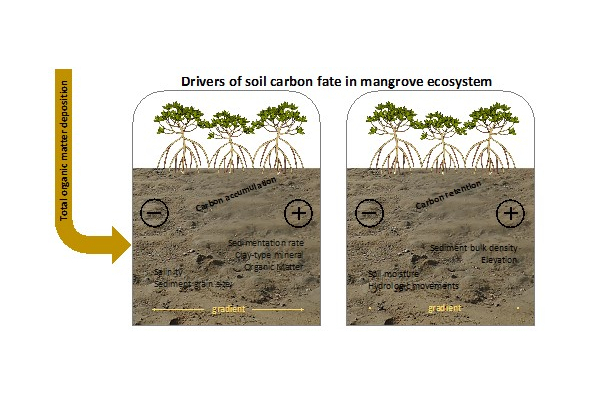CARBON FLUXES AND PROCESSES AROUND HONG KONG URBANIZED MANGROVES
Globally, mangrove habitats act as efficient carbon sinks, with soils storing up to 2/3 of total carbon. This thesis focused on understanding carbon accumulation, microbial dynamics, and the influence of local versus external microbial communities in Hong Kong's mangroves. Results showed an average soil carbon stock of 115 ± 8 Mg C ha-1, indicating Hong Kong mangroves are on the lower end globally. Spatial variations in carbon stock were linked to organic matter inputs, soil fluxes, and hydrodynamics. Microbial communities exhibited resilience to environmental variations but showed taxonomic adjustments in response to factors like salinity or nutrient content. Analysis of internal and external DNA revealed distinct microbial communities, with the local active community mainly comprised of terrestrial and mixed habitat taxa. These findings deepen our understanding of mangrove carbon stock variability, emphasize the importance of standardized methodology, and highlight the resilience and functional maintenance of microbial communities despite environmental fluctuations. Proper differentiation between local and external microbes is crucial for understanding their role in biogeochemical processes.
Additional information: Ms. Laetitia ALLAIS, u3006445@connect.hku.hk










